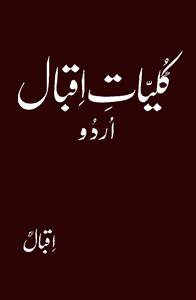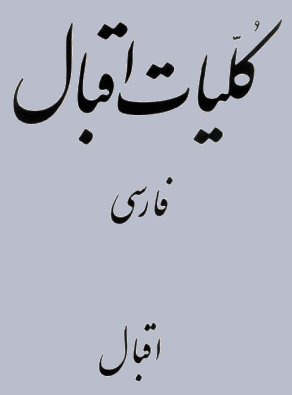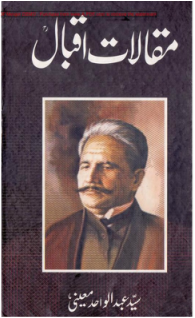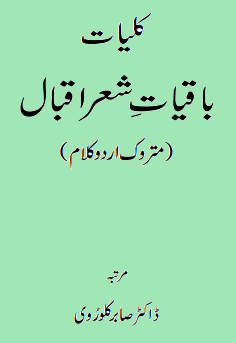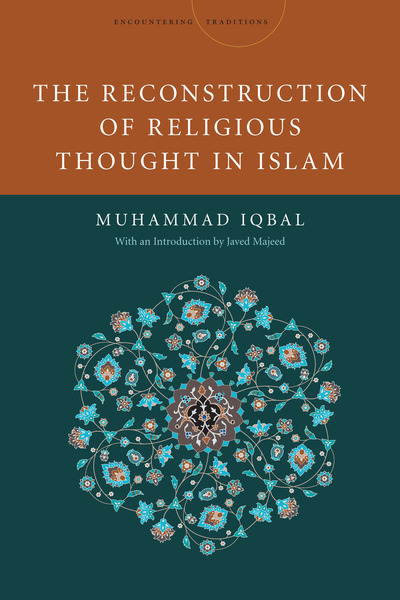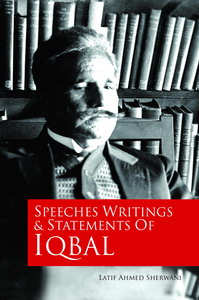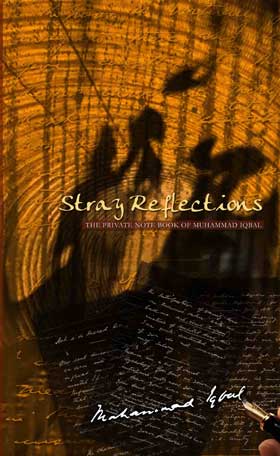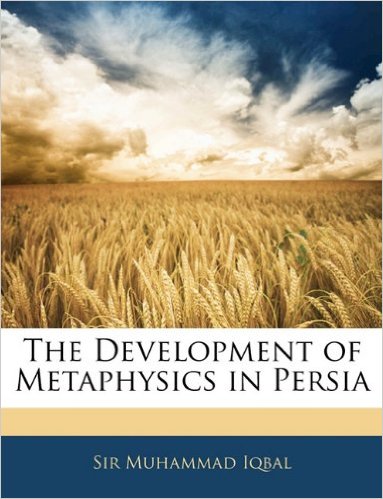Iqbal on Man’s Quest for the Object Worthy of Human Worship
Iqbal on Man’s Quest for the Object Worthy of Human Worship
by Prof. Muhammad Munawwar
It is in man’s nature to feel that he lacks something within him without which he is not complete. Some painful sense of loneliness urges man to find out something higher to look up to and love. And for this inner thirst he tries to look humble before someone or something he falls in love with. After all, what makes a man bow before even an idol made of clay, wood, stone or metal? Man’s search for someone higher than himself for his own sake is a pull ingrained in him. Man tries to show respect to and obey someone’s orders; he even seeks rebukes and threats. This is man’s spiritual hunger. Slowly and gradually man’s search for a better object of love and adoration makes him rise to celestial heights. Iqbal says:-

What to do? My nature cannot reconcile to remaining content with one place and station. I have a restless soul which is like the morning breeze blowing in a garden of tulips.
As soon as my eyes fall upon a beautiful beloved, my heart begins to yearn for some more good-looking object of love.
I have the spark for a star and from the star I pass on to the sun.
I have no destination before me to stay at, for if I stay, I die…
I want to know the remotest limits of the One Who is limitless. I crave for this with an impatient glance and with a heart full of hope.
The search for the good and high and then proceeding on the best and the highest is the trail of every human soul. As already said, this thirst and craving is inborn which makes man feel lonely and impels him to try his potentialities in doing away with that sense of loneliness or incompleteness. A heart that once becomes really conscious of this state of deficiency to be made good can never feel satisfied with anything save in the love abode of the highest, the most Graceful and Almighty. If that sort of spiritual proximity to Divine Grace is not granted to a restless soul or attained by the same, then the possibility of losing senses is not a remote one. But this dangerous sequence is the lot of only those sensitive souls who become aware of their state of incompleteness and who consciously begin to yearn for a soul brighter and higher in all respects. Nietzsche’s painful, rather tragic doom was the result of the same sense of remoteness from someone whose clear notion he failed to have. Iqbal felt sorry for Nietzsche. He states:-
“And the irony of fate that this man [Nietzsche], who appeared to his friends ‘as if he had come from a country where no man lived,’ was fully conscious of his great spiritual need: ‘I confront alone,’ he [Nietzche] says, ‘an immense problem: it is as if I am lost in a forest, a primeval one. I need help. I need disciples: I need a master. It would be so sweet to obey. And again: “Why do I not find among the living men who see higher than I do and have to look down on me? Is it only that I have made a poor search? And I have so great a longing for such.”2
Iqbal felt sorry over Nietzsche’s deprivation and sense of having failed to visualize Allah. He was in fact driven to that highly painful pitch by the idea of an impotent Greek God and the God of the humble as preached by the Christian Churchmen. Among men he could find none who was better endowed than him in respect of spiritual faculties and who could show him what real manliness meant. Nietzsche remained in search of a man, a real man, and not an apish two-legged being, with no vigorous personality. He was fed up with the ape-men of his age; hence he hankered after a superman. He could never believe in man being the best of God’s creatures. Disgusted with worthless homo sapiens, he becomes bored with the idea of God Himself Who created them. Man as a supreme creation had no credit with him; therefore nobody could tell him that his need was not the superman but the best man of the world of human beings, past, present and future. He could be saved from the unbearable pangs of his despair with man, only if he could get somebody who could guide him to the life-giving spiritual presence of the Perfect Man. Only an all-benevolent Perfect Man could have enabled him to recognize the Omnipotent God, Who willed and all was done. But the tragedy was that no such master was there to put Nietzsche on the straight path of perfect manhood and God. Iqbal felt deeply the spiritual sorrows and tribulations of Nietzsche. This is why he said:-

“Had that possessed dervish of the West been alive these days, Iqbal would have made him understand the meanings of God’s Majesty.”
In trying to attain his uppermost ceiling, to fulfil his inborn need and to make good the deficiency felt so keenly by the man who becomes conscious of all this want, it is necessary for such a man to imbibe certain specific traits and characteristics. That he can do. He is made like that, the only condition being the maintenance of proportion between his physical and spiritual pulls. The Holy Prophet (PBUH) has directed the human beings to adopt the Habits of Allah, meaning that man’s behaviour, outlook, aptitude and actions must reflect something, gracefully Divine. This is what ( ) signifies.
) signifies.
For this purpose man is in dire need of a discipline, exercise and a way of life that could mould him into an individual capable of realizing his self. A self, realized, means a personality in which soul has attained dominance over the body, harnessing all powerful instinctive pulls to work in palpable harmony. This discipline, exercise and way of life is the Shari’ah i.e. the Islamic Code of Life, as enjoined by the Qur’an and practised in the best manner by the Holy Prophet (PBUH). This Shari’ah according to Shah Wali Ullah, is the need of man himself, for he cannot attain real manhood without it. Shah Wali Ullah’s illustration of this instance has been given by G.N. Jalbani as under:-
“Shah Sahib differed from his contemporaries, both Sufis and dialectitions… The former asserted that the real aim in life was self-annihilation and attainment of permanency. The duties imposed by the Shari’ah were actually meant for the realization of this aim. As the achievement of it was not possible for everyone, the success of a few would suffice. The latter, on the other hand, were of the view that Shari’ah was, in fact, the real aim of life. He on the contrary, was of the opinion that in regard to the specific form of man, the Shari’ah alone was the very purpose of his life. In other words, it was the very requirement of his nature. It had not been thrust upon him but had been given to him at his request. Consequently, the commandment of the Shari’ah, which is the requirement of man’s specific form, is applicable to all human beings, and is inclusive of all the human individuals, as humanity penetrates all of them. Individual qualities of a few persons are out of consideration here.
“As a matter of fact, the people were fain dominated by the self-commanding Evil (an-Nafs-ul-Ammarah), and if they had been left to die in that condition, they could not have escaped the sufferings of the life after death. Thus, in order to avert those sufferings from them, God, the Gracious, out of His sheer kindness, sent through His messengers a remedial measure, namely “the Shari’ah.”5
The long quotation given above, was translated by Mr. Jalbani from Shah Wali Ullah’s Wasiyyat Namah. pp. 24-25 and 89-90. Shah Wali Ullah has always been held in the highest esteem by Iqbal as is abvious from his letters, statements and the Reconstruction. In the Reconstruction he refers to Shah Sahib in these words:-
“The task before the modern Muslim is, therefore, immense. He has to rethink the whole system of Islam without completely breaking with the past. Perhaps the first Muslim who felt the urge of a new spirit in him was Shah Wali Ullah of Delhi.”6
What has been quoted from Shah Sahib’s view of the Shari’ah is in conformity with what Iqbal himself believes to be, i.e. it is the need of man and the Almighty Lord has been gracious with man to have bestowed this boon on him enabling him to try for the attainment of perfect manhood.
Man cannot peep into the deep recesses of his psyche which establishes its relations through internal invisible physical and spiritual tunnels with his remote forebears. Moreover, as already stressed, the most significant point is that man, not being his own creator cannot understand all his qualities, potentialities, shortcomings, inner diseases and their cures, etc. The natural corollary is that he cannot, left to depend on his own sources of perception, know what is good for him and what is evil. Iqbal states:-

“Man in this universe of good and evil can hardly differentiate between the profit and loss.
No human being understands which of his deeds is ugly and which fine. Similarly, he does not really perceive what is the easy path and what the difficult.”
God the Gracious, since the inception of man in the world, has been sending His Messengers for his guidance, to save him from individual attempt to devise the best code of behaviour for him. Man, without such divine grace could never have risen above the trial-and-error level. Even in countries where belief in God in these days is an anathema, the notion of good and evil, truth and falsehood, integrity and infirmity of character had begun through some revealed guidance.
And to accept that revealed guidance and to act according to its injunctions is not difficult for man, once he is made conscious of his real significance. God’s Law is the natural code of behaviour for man. It is just the observance of limits in all his deeds, aspirations, likes and dislikes. It is to enable man to evaluate himself so that he may evaluate others. It is to make him understand his own duties and rights as well as those of others. The consciousness gradually evolves into a state of naturalness. Man then begins to feel that to behave in the best manner possible is not a burden some direction imposed on him from outside; it rather oozes out of his own spirit. It is, in other words, hidden within him, waiting for the opportunity to come to the surface. When such conformity between the nature of man and the principles of nature takes place, it stands for a proof in respect of the individual concerned that he or she have become a true believer. Iqbal’s illustration of this point is as follows:-
“A man becomes a Muslim only when the commandments and prohibitions of the Qur’an appear to him as his own desires. He would not then think that his endeavour to imbibe good morals, a taste for worship, aversion for ugly deeds and spiritual evils were a compliance of some strict authoritative orders of an unforgiving master. Instead, the proclivity to doing good and avoiding obnoxious deeds should rise from his own inner depths. The Qur’an should not appear to him as a medicine, though invigorating, yet bitter. It should rather become a tasty and enlivening food for him, so much so that there would remain no purpose. This is what ( ) connotes.”8
) connotes.”8
The same meanings are conveyed by the following verses of Iqbal:-

“Shari’at sprouts from the depths of life. Darkness gives way before its light and turns it into illumination.
If all the world of man were to accept prohibitions enjoined by it as prohibitions for all of them, the social structure built in its light would last for ever.
In the Qur’an, God has laid down very clearly that there can be no change in His “Way”( ). Therefore, societies which learn to live strictly according to the Shari’at, i.e. the way of God, would not decay and die. This is because the essentials of all things remain the same. For example, all basic qualities of water as water have been the same from eternity and have to be the same till eternity. The sun rising from the East and going down in the West, changes of weathers and growth of things continue to take place now as ever. It is God Who knows after how many years and centuries He brings about what. Yet the essence of every created thing is true to itself. The balance set by the Creator cannot be disturbed. The strength of the universe lies in this eternal regulating principle, i.e. the balance. The Qur’an calls human beings to attention in the following words:-
). Therefore, societies which learn to live strictly according to the Shari’at, i.e. the way of God, would not decay and die. This is because the essentials of all things remain the same. For example, all basic qualities of water as water have been the same from eternity and have to be the same till eternity. The sun rising from the East and going down in the West, changes of weathers and growth of things continue to take place now as ever. It is God Who knows after how many years and centuries He brings about what. Yet the essence of every created thing is true to itself. The balance set by the Creator cannot be disturbed. The strength of the universe lies in this eternal regulating principle, i.e. the balance. The Qur’an calls human beings to attention in the following words:-

“And the firmament, He has raised high, and has set up the Balance (of justice) in order that ye may not transgress the balance.”
Man is called upon to maintain balance within and without. For his own self he needs guidance so that he may observe self-discipline. As a member of society also he is directed to maintain and help others in maintaining discipline. Things that were conducive to the proper growth of an individual as a human being are the same. Similarly, what stands for collective good of man is still the same. The essence of human beings and the things around them can never undergo any change. Hence the commandments of God are all that is good for man and His prohibitions are all that is evil. The Qur’an has related the stories of ancient nations as to how they grew in strength and wealth and prosperity and then how and why they declined and became extinct. The values are by their very nature external. Man and societies, because of their short span of existence, cannot fully comprehend the sequence of God’s prohibitions and commandments. Therefore they turn one category into the other. They sell good for evil. Sometimes they do so knowingly and sometimes unknowingly. The catastrophic result is the same. But God has made man capable of improvement if he so desires. Therefore His guidance has always been available to human societies through His Messengers. Whether man accepts divine guidance which is God’s Grace in respect of man or he rejects it, depends on his own choice. The choice is his. And he is accountable to God for his choice. Man is equipped with the required faculty of will and capacity to do and to avoid. In this regard Iqbal states:-
“We cannot understand the full import of the great cosmic forces which work havoc, and at the same time sustain and amplify life. The teaching of the Quran, which believes in the possibility of improvement in the behaviour of man and his control over natural forces, is neither optimism nor pessimism. It is meliorism, which recognizes a growing universe and is animated by the hope of man’s eventual victory over evil.”11
This meliorism in respect of man’s progress keeps the candle of guidance always aglow and for this very purpose the Qur’an states the legends of ancient societies stressing their behaviour towards God’s commandments and prohibitions, why these societies prospered and how they met their doom and perished. As the principles or, you may say, the values are essentially the same, therefore the legends which throw light upon values are related again and again by God. The purpose is obvious, to warn as well as to give glad tidings. Live in this manner and you flourish. Live in that manner and you wither away. This sequence is explained by Iqbal in the lines that follow:-
“The Quranic method of complete or partial transformation of legends in order to besoul them with new ideas, and thus to adapt them to the advancing spirit of time, is an important point which has nearly always been overlooked both by the Muslim and non-Muslim students of Islam. The object of the Quran in dealing with these legends is seldom historical; it nearly always aims at giving them a universal moral or philosophical import. And it achieves this object by omitting the names of persons and localities which tend to limit the meaning of a legend by giving it the colour of specific historical event and also by deleting details, which appear to belong to a different order of feeling.”12
References
- Payam-i-Mashriq, pp. 127-28.
- Reconstruction, p. 195.
- Bal-i-Jibril, p. 56.
- “Inculcate in you the habits of God.”
- G.N. Jalbani, Teachings of Shah Wali Ullah. (Sh. Muhammad Ashraf, Lahore, 2nd edn., 1973), pp. 86-86.
- Reconstruction p. 97.
- Pas Che Bayad Kard. p.30.
- Mulfuzat-i-Iqbal. 70.
- Pas Che Bayad Kard Ai Aqwam-i-Sharq, p. 30.
- Al-Qur’an, iv: 7-8.
- Reconstruction, p. 81.
- Ibid., 82.


